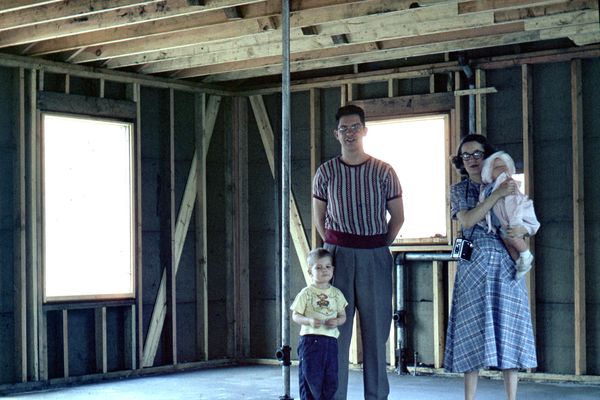What Our Parents/Grandparents Endured
May 11, 2020 08:59:59 #
rehess wrote:
We would quarantine the sick - we want to quarantine "the sick"- but this thing got out of control before we knew what we are working with. We now know that someone can be infectious before s/he will show any symptoms, but even now we do not have enough testing to test people every day like they do at the White House. Until we get this thing enough under control to do serious contact tracing we won't know on whom our relatively few testing should be done.
COVID-19, like other viruses, has a population penetration rate of between 70% and 80% (depends on who's writing the article). There's no way to avoid exposure - isolation/quarantine, masks, PPE. The virus will have to run its course. Sweden has the right idea. Viruses do poorly in sunshine and warmth. So, the solution is to get outside into the fresh air and sunshine; get some natural Vitamin D, take some capsules, and heal yourself.
Further, I'm not sure that testing will solve anything, other than for statistical measurements. Folks who are asymptomatic-to-low symptoms could be studied for their apparent antibodies, but even that would take too long for any real value. There are already indications that COVID-19 is mutating, so any data may be nearly useless for study, especially the early case.
I'm not a fatalist, but I read "The Great Influenza: The Story of the Deadliest Pandemic in History", and folks were caught nearly as flat-footed today, as in 1918. Despite what we learned, few took seriously the peril, much less learned lessons.
May 11, 2020 09:00:59 #
pendennis wrote:
During WWII there was little, to no wealth creat... (show quote)
But after ‘The War’, my parents used the money they saved during ‘The War’ to buy a car, build a house, and furnished it - life was good for most of us then.
I am little boy standing in picture.

May 11, 2020 09:19:38 #
Curmudgeon wrote:
I tried to follow your logic and can't. To complain is everyone's right, at least for now. To whine and cry about things that can't be controlled serves no one's interest.
Never mind.
May 11, 2020 09:50:37 #
rehess wrote:
But after ‘The War’, my parents used the money they saved during ‘The War’ to buy a car, build a house, and furnished it - life was good for most of us then.
Yes, savings were "forced", in that sense. Lot's of cash, nowhere, nothing on which to spend it. The war generated a great deal of pent-up demand. My point was that your mom and dad, mine, and millions of others could make their own decisions about what was most important to them. There was a lot of potential damage about letting the government decide winners and losers in the economy.
There were lots of folks who needed new cars, already had existing homes; needed a new "Frigidaire", range, furnace (lots of conversions from coal to gas at the time); so, everyone made the economic decisions best for them. Oh, and I almost forgot, all them "boomers" coming along in 1946, created the need for new schools, cribs, clothes, you name it.
PS - I'm a boomer, born in 1947.
May 11, 2020 09:57:52 #
May 11, 2020 11:08:32 #
rehess wrote:
So am I
While there were a lot of houses built, one of the things that stands out is the "cracker box" style that a lot of those homes used. We had a bunch of subdivisions in Louisville,KY, and its suburbs. Even though they were stick built, you had to be careful if you came home late, a bit tipsy. You couldn't know your were in the right house, or even on the right street!




May 11, 2020 18:24:35 #
David Martin
Loc: Cary, NC
BBurns wrote:
This Historical perspective is not a cure-all, but... (show quote)
Well put.
You might add to that: enduring polio, including the social distancing and school closures employed by many communities to halt the spread and protect their citizens.
May 11, 2020 23:36:22 #
David Martin wrote:
Well put.
You might add to that: enduring polio, including the social distancing and school closures employed by many communities to halt the spread and protect their citizens.
You might add to that: enduring polio, including the social distancing and school closures employed by many communities to halt the spread and protect their citizens.
Polio epidemics were primarily a summer phenomenon. And one of the reasons was that people who got it often had been swimming in public pools, and it is primarily a disease of the young. When my aunt contracted it in September 1952, the Louisville General Hospital was overrun with cases from all over Kentucky, and the vast majority of those were young people. There were older adults who contracted the disease, and their death rate was a bit lower than those of young adults. Doctors believed, at the time, that fatigue was a factor, that young folks would go like hell all day long, then crash and sleep after that.
I had a mild case compared to my aunt. She was turned into a quadriplegic, and losing most of her ability to exhale. It attacked her back muscles on one side, causing a permanent spine curvature, and using an iron lung and a chest respirator brought their own problems. The constant pace of breathing caused problems with blood chemistry, and periodically she had to be put in the hospital to get it straightened out. She also took phenobarbital nightly to prevent convulsions, and did so until she died in 1997.
I also believe I was the one who spread it to her. She contracted polio about two weeks after my case, and she had stayed with us for a couple of weeks during August 1952. Doctors also believed that one of the reasons for the virulent polio epidemics was the migration from rural areas to cities, starting around 1915. Urbanites had developed the so-called "herd immunity", something the rural folks didn't have. There are those out there who really believe that the Salk and Sabin vaccines weren't effective; that Polio was dying out. However, I know of no one my age who regretted taking the three shots, then the three sugar cubes.
In 1971, the pulmonary department at the University of Louisville medical school sought people who had polio, to extensively measure one's current breathing capacity, and compare that to a "normal" distribution of the population in Louisville; my loss was measured at around 15%. I also had upper body strength loss, and in 1997, I was diagnosed with "Post-Polio Syndrome", a further loss of muscle mass and tone.
While the Salk vaccine was still over a year away, the schools were packed with boomers; our classrooms were crowded until 1959.
May 12, 2020 20:36:42 #
Pendennis wrote: Polio epidemics were primarily a summer phenomenon. And one of the reasons was that people who got it often had been swimming in public pools..."
In my own history, sand boxes were considered a primary vector for polio contagion. My mother (a teacher) ran a summer camp some 70 miles away from Montreal out in the country. She kept the camp operating for a couple of extra months and kept me and other children whose parents so desired well away from the polio hotspots. That was in 1945 and 1946. She herself returned to the classroom to provide for attending students while I remained at camp.
In my own history, sand boxes were considered a primary vector for polio contagion. My mother (a teacher) ran a summer camp some 70 miles away from Montreal out in the country. She kept the camp operating for a couple of extra months and kept me and other children whose parents so desired well away from the polio hotspots. That was in 1945 and 1946. She herself returned to the classroom to provide for attending students while I remained at camp.
May 13, 2020 09:59:05 #
jhkfly wrote:
Pendennis wrote: Polio epidemics were primarily a ... (show quote)
From memory, and what I've read since, there were any number of theories for polio outbreaks. I just hadn't read about "sand boxes".
I'd spent a great deal of time with my grandparents in rural Kentucky (1947-1952). My mom and dad had four kids, and my grandparents were always happy to help their daughter, and get to spoil me at the same time. Our family physician believed I may have lost my "urban" immunity to polio, spending so much time in the country. No way to know for sure, but his explanation was as good as any.
The epidemiology studies of polio probably fell by the wayside after introduction of the Salk/Sabin vaccines. The National Foundation for Infantile Paralysis (March of Dimes), spent most of their resources in providing long-term care for existing patients. My aunt received free equipment until she passed away in 1997. They also paid for her hospital stays. The long-term medical problems included renal, heart, digestive, and pulmonary issues.
An aside here - Over the years, fewer and fewer doctors every saw polio patients/survivors. My aunt had periodic stays in a local hospital, and medical staffers were amazed at the iron lung and chest respirator she used. Whenever she had to go, the near-by fire station handled moving the iron lung, since hospitals, by the 1970's had long since gotten rid of them.
May 13, 2020 11:29:20 #
If you want to reply, then register here. Registration is free and your account is created instantly, so you can post right away.

